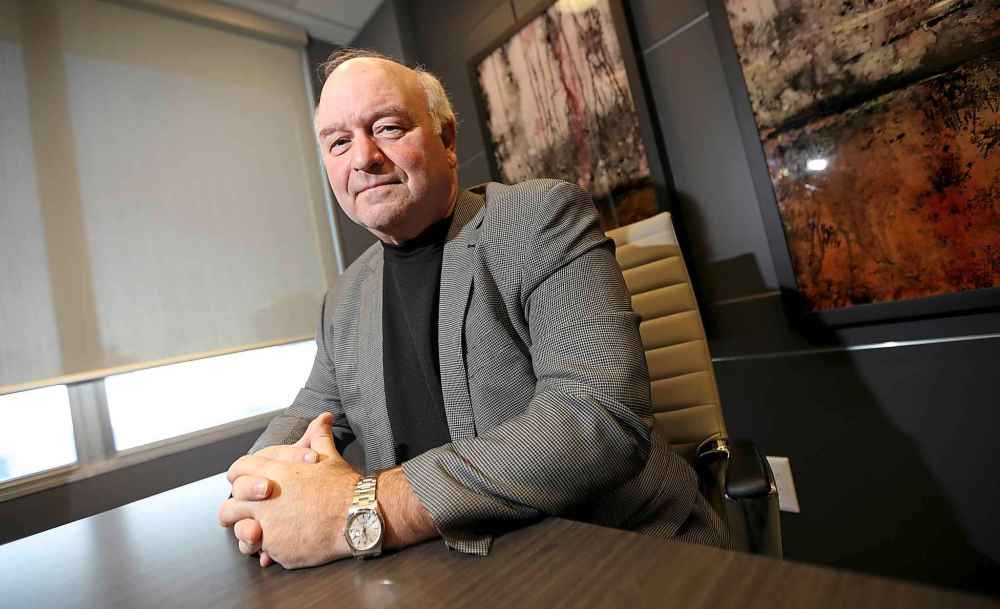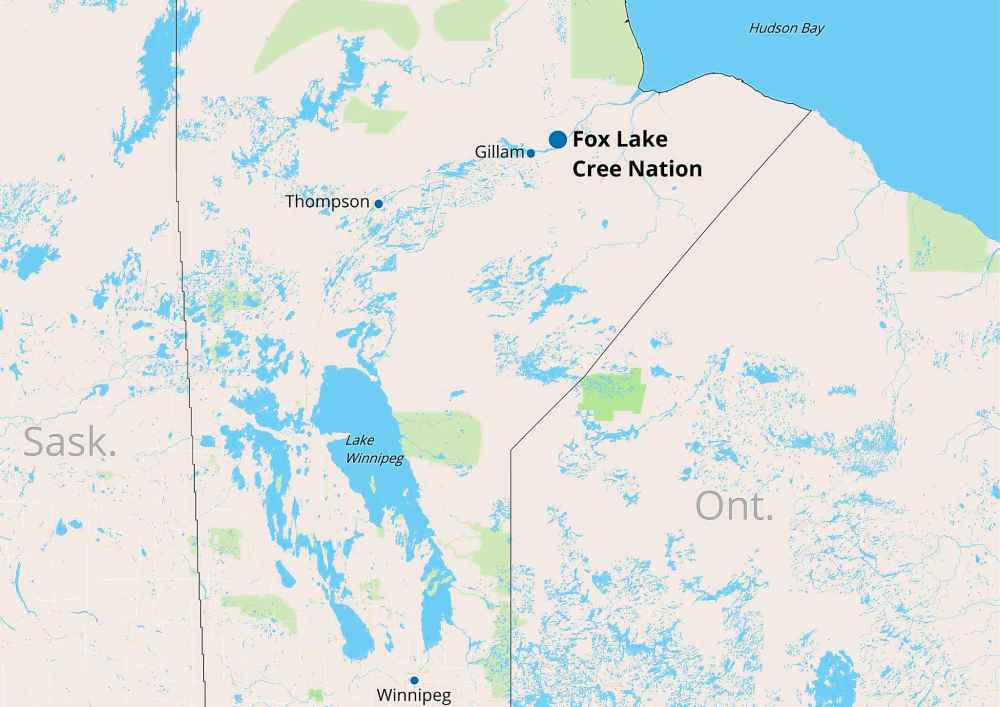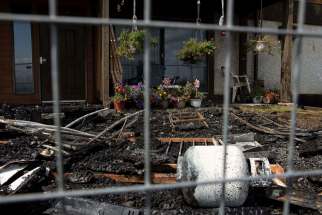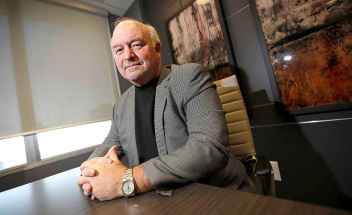Police watchdog may probe RCMP conduct in Fox Lake sex abuse allegations
Read this article for free:
or
Already have an account? Log in here »
To continue reading, please subscribe:
Monthly Digital Subscription
$0 for the first 4 weeks*
- Enjoy unlimited reading on winnipegfreepress.com
- Read the E-Edition, our digital replica newspaper
- Access News Break, our award-winning app
- Play interactive puzzles
*No charge for 4 weeks then price increases to the regular rate of $19.00 plus GST every four weeks. Offer available to new and qualified returning subscribers only. Cancel any time.
Monthly Digital Subscription
$4.75/week*
- Enjoy unlimited reading on winnipegfreepress.com
- Read the E-Edition, our digital replica newspaper
- Access News Break, our award-winning app
- Play interactive puzzles
*Billed as $19 plus GST every four weeks. Cancel any time.
To continue reading, please subscribe:
Add Free Press access to your Brandon Sun subscription for only an additional
$1 for the first 4 weeks*
*Your next subscription payment will increase by $1.00 and you will be charged $16.99 plus GST for four weeks. After four weeks, your payment will increase to $23.99 plus GST every four weeks.
Read unlimited articles for free today:
or
Already have an account? Log in here »
Hey there, time traveller!
This article was published 27/08/2018 (2660 days ago), so information in it may no longer be current.
OTTAWA — Manitoba’s police watchdog will decide as soon as this week whether to investigate testimony that RCMP officers were complicit in sexual assaults allegedly committed by Hydro workers dating back to the 1960s.
“Every case will be determined by its unique set of circumstances and facts that are found,” Independent Investigation Unit civilian director Zane Tessler told the Free Press Monday.
Last Tuesday, the Manitoba government released a damning report from the arm’s-length provincial agency Clean Environment Commission, detailing allegations of discrimination, assaults and sexual abuse by Hydro workers during the construction of northern dam projects.

The CEC report included alleged RCMP complicity in “brutalizing men, permitting the exploitation of women and failing to take local complaints seriously, although there were instances of these complaints being addressed.”
A member of Fox Lake Cree Nation had testified that Mounties had “organized gangbangs” in nearby Gillam, taking women “to jail for no reason, to be sexually abused while being incarcerated in jail overnight.”
RCMP called the IIU last Wednesday, and have since had in-person discussions and followup calls, Tessler said.
The IIU will determine whether the allegations fit its mandate. The unit was launched in June 2015 to investigate incidents of serious injury or death in the course of a police investigation in Manitoba.
Its mandate, however, is discretionary for other issues, such as when officers break the law. In those cases, the IIU often oversees the police force’s own investigation — and steps in if it seems the probe is inadequate — unless the IIU decides from the start that it ought to instead be leading the probe, “if the public interest demands an investigation.”
The Fox Lake allegations fall into the discretionary category.
The IIU has just eight investigators, plus a commander, who all work full time. “We always are mindful of our resources and we do have contingency plans available, in the event that our resources may be outstripped,” Tessler said. Those plans can range from asking an outside agency for help, to transferring the case entirely to an external police force.
Tessler said he hasn’t had to refer any cases to an outside body, “and we’ve had some big ones.” He cited the November 2015 shooting death of Mark di Cesare on the grounds of Kapyong Barracks at Grant Avenue and Kenaston Boulevard, which involved more than 100 interviews and a crime scene that spanned 22 kilometres.
Meanwhile, it’s unclear whether the IIU, or any other body, will probe claims that Mounties failed to investigate alleged crimes by Hydro workers. The RCMP has an independent agency, the Civilian Review and Complaints Commission, that looks at code-of-conduct issues that fall short of Criminal Code breaches.
But last week, a spokesman for federal Public Safety Minister Ralph Goodale noted that Mounties contracted to provincial postings are under that province’s jurisdiction. That suggests officials might ask the Law Enforcement Review Agency or even the IIU to look into Mounties’ alleged failures.

First Nation looking for details
Leadership from Fox Lake Cree Nation is considering whether it wants to participate in a planned steering committee tasked with finding solutions after fallout from the Clean Environment Commission (CEC)’s latest report.
Last week, Sustainable Development Minister Rochelle Squires released a regional cumulative effects assessment report from the CEC that compiled testimony from northern and First Nations communities about the effects of Manitoba Hydro development in their areas. The report was dated May 28, 2018, but Squires released it nearly three months later.
Leadership from Fox Lake Cree Nation is considering whether it wants to participate in a planned steering committee tasked with finding solutions after fallout from the Clean Environment Commission (CEC)’s latest report.
Last week, Sustainable Development Minister Rochelle Squires released a regional cumulative effects assessment report from the CEC that compiled testimony from northern and First Nations communities about the effects of Manitoba Hydro development in their areas. The report was dated May 28, 2018, but Squires released it nearly three months later.
The shocking results included allegations of sexual abuse and racial discrimination at the hands of Hydro workers, starting in the 1960s and largely concentrated around Fox Lake. The province asked RCMP to investigate the findings.
Squires said the steering committee will consist of Hydro employees and officials from the Sustainable Development department.
Fox Lake CEO Robert Wavey said the First Nation’s membership isn’t sure what the committee’s goals are.
“I think that’s important for us to know. What are the terms of reference and (is) it something that we would be welcome to participate in?” he said Monday.
When asked what the terms of reference for the committee would be, when members would meet and whether the province would consider non-Hydro and Sustainable Development officials for the committee, a government spokesman responded with a prepared statement from Crown Services Minister Colleen Mayer.
“Given the seriousness of this report and the allegations that it contains, our government is consulting with the affected Indigenous communities to arrive at solutions that address the needs of those communities,” the minister said.
Wavey said members of Fox Lake could offer close to 60 years of stories related to Hydro, including “lived experiences of a lot of people who have had to endure all of the negative stuff that had happened during the course of those developments.”
“I think we would also have some ideas of our own on how those (issues) might be addressed and, to a degree, resolved,” Wavey said.
Manitoba NDP Leader Wab Kinew put out a statement Monday calling on the province to include leadership from northern Hydro-affected communities on its CEC committee.
“The residents of Fox Lake Cree Nation have calmly and courageously raised their voices throughout decades of abuse and hate,” he said.
“Their community is committed to addressing this issue and working towards healing. It was Hydro and the Manitoba government making decisions without the community that led to these problems. The community must be included as we work towards solutions.”
— Jessica Botelho-Urbanski
The IIU doesn’t review investigations that a police force already conducted, but it can probe historical issues that only recently came to light. Tessler also stressed that even if the IIU decides not to probe the CEC report’s allegations, it will reconsider any new evidence that emerges.
If the IIU does look into the Fox Lake allegations, his staff will focus only on the role of Mounties, not the Hydro workers, nor wider issues about violence against women.
“The mandate of the IIU is to focus on police involvement, solely; we’re not looking at other agencies or other individuals,” he said, saying those other issues may be looked at by police forces, inquiries or courts.
The Assembly of Manitoba Chiefs sent along last week’s CEC report to the National Inquiry into Missing and Murdered Indigenous Women and Girls. An inquiry spokeswoman confirmed receiving the report, but said accountability shouldn’t wait for the commissioners to weigh in.
“The national inquiry is calling on the Manitoba government, Manitoba Hydro and the RCMP to take all necessary steps to implement every measure that can be taken to ensure the safety of Indigenous women, girls and (LGBTTQ*) peoples. Actions need to be taken now,” wrote Nadine Gros-Louis.
dylan.robertson@freepress.mb.ca















